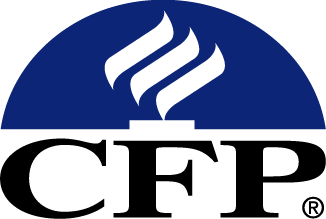Major Difference between the Madoff & Stanford Frauds
Submitted by TROY M. SMITH on November 19th, 2018The ongoing news about Bernard L. Madoff and R. Allan Stanford frauds is uncovering some very important distinctions investors should be aware of. The Wall Street Journal reported last week1 clients of Madoff who took money out of their accounts over the past six years have been sued to return these monies to be divided among all the investors who have a claim against the firm. Of course, current Madoff clients do not have the ability to get money at the moment. There is precedent in a similar fraud in 2005, the Bayou hedge fund, with past investors having to pony up principal and profits.
In the case of the Stanford fraud, which was uncovered after the Madoff fraud, U.S. District Judge David Godbey agreed to release most brokerage accounts with $250,000 or less that have been frozen since the U.S. Securities and Exchange Commission accused Stanford of the $8 billion fraud scheme involving certificates of deposit.2 What is going on here? The difference is custody. Madoff's firm took custody of clients' cash and securities and pooled them together. On the other hand, the accounts being freed up at Stanford's firm are held in individual accounts at a third party custodial firm, Pershing LLC. Pershing is owned by the Bank of New York Mellon. Bank of New York Mellon was the first stock listed on the New York Stock Exchange and is serving as custodian for the implementation of the Troubled Asset Relief Program (TARP) for the federal government.3
Both Madoff and Stanford took discretionary authority of client's cash and securities, moving investments as they saw fit without contacting clients. Many money managers, investment advisers, take discretionary authority over clients' money and execute trades on their behalf. If the firm also takes custody, they may also take discretion over where the trades are settled, that is, which brokerage or clearing firm. In addition, managers/advisers may also take discretion over how much commissions are charged at the clearing firms.
Whether an investment adviser takes custody and/or discretion must be disclosed on their Form ADV filed with the Securities and Exchange Commission. Madoff's Form ADV clearly indicated he took discretion, and most important, custody of clients cash and securities. By taking custody, Madoff had an easier task in concealing his fraud. Before deciding what to do with your investment capital, check the firm's Form ADV to see if they take custody and discretion. By law, a firm's Form ADV should be delivered to clients by the firm and updates offered annually. Form ADV's are also available online at: http://www.adviserinfo.sec.gov. If the firm does not have a Form ADV, it means they have not filed one. Madoff's firm failed to file a Form ADV till 2006. This should have been a major warning signal.
Those who file Form ADV are held to a fiduciary standard, interpreted in most states to mean the adviser must act in the best interests of their clients and provide full disclosure. Only up until recently did the Securities and Exchange Commission require many hedge funds to register.
Many of those who invested with Madoff invested through �feeder funds�. These added layers meant more fees and less transparency, so seek to understand where your money is ultimately invested and who the custodian is. Lastly, if the firm takes custody, be extremely cautious and understand if you become the victim of fraud, your money may be at risk long after you have terminated your client relationship with an investment adviser.
Troy Smith, Certified Financial Planner™ offers fee-based or fee only Financial Planning advice to clients in Raleigh, Cary, Wilson, Smithfield, and other locations. His home page is www.asktroy.com.
1 online.wsj.com/article/SB123930717747706017.html April 10, 2009 (subscription required)
2 money.cnn.com/2009/03/06/news/companies/stanford_investors/index.htm March 6, 2009
3 www.ustreas.gov/press/releases/hp1211.htm October 14, 2008

